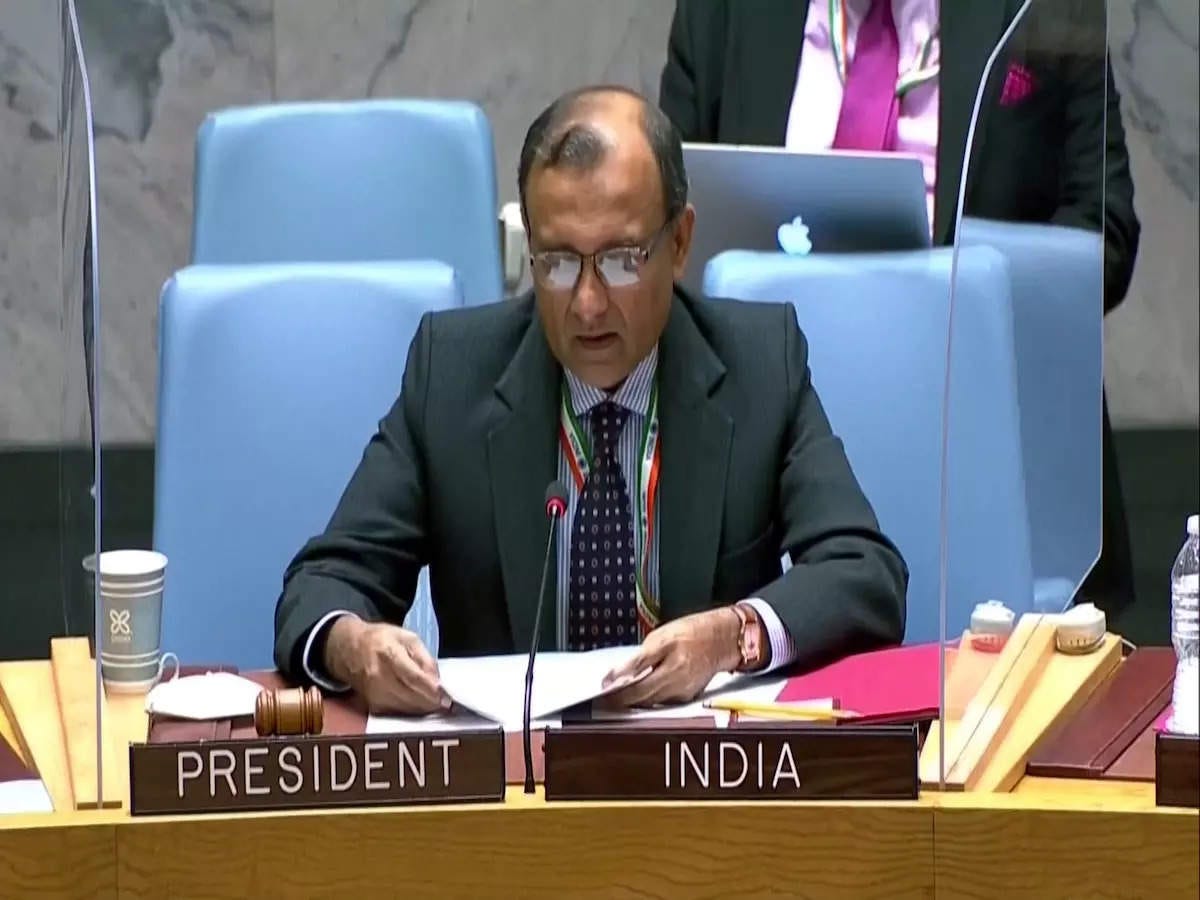Hello, hope you are having a great Sunday. This week we analyse escalated situation in Russia and Ukraine, the power of rebranding and the value of subtraction.
Top Jobs of the Week
The Escalation
The long stretched diplomatic dialogues did not bring any fruitful results to Russia and Ukraine relationship. In recent months, Russia had deployed its troops at the Ukraine border with an intent that was unknown till 24th February 2022.
Present Scenario-
On 24th February 2022, Russia announced a "military operation" in Ukraine and directed the Russian soldiers to lay down their arms, going against Western outrage and global appeals not to launch a war.
Given this, many first world countries and the United Nations are condemning Russia’s actions and are supporting Ukraine by imposing economic sanctions on Russia and providing assistance to Ukraine. However, there are countries like China and India whose stances are not clear as of now. Syria has supported Russian actions and sees it as a historical correction.
North Atlantic Treaty Organisation’s Response-
NATO Secretary-General Jens Stoltenberg called Russia’s actions “a brutal act of war” and was affirmative of defending the member countries if Russia attacks them. However, the secretary-general also confirmed that they won’t be deploying troops on the Ukrainian border because it is not a part of the alliance.
Context- Technically, Ukraine is not a part of NATO and in past had shown interest in being part of the military alliance.
India Dallies-
India, being an ally to both USA and Russia is trying to remain neutral as India’s Permanent Representative United Nations TS Tirumurti said while addressing the UNSC meeting on Ukraine-
“Any steps that increase tension may best be avoided by all sides in the larger interest of securing international peace and security. Quiet and constructive diplomacy is the need of the hour. We reiterate our call for the peaceful resolution of the situation by sincere and sustained diplomatic efforts to ensure that concerns of all sides are amicably resolved through constructive dialogue.”
How will the current crisis impact India?
India has good relations with all three countries Ukraine, Russia and USA. It will impact India's relations with the countries if it chooses to side with any of them. Here’s how-
Diplomatic Impact- The US wants India to side with Washington as it condemns Russia’s actions towards Ukraine. Moreover, USA and India are a part of the 'Quadrilateral Security Dialogue (QUAD)group which aims at reducing China’s influence in the Indo Pacific region and the world. As per the experts, China might act against India, Taiwan and the QUAD, given its good relations with Russia.
Impact on Defence: India is the largest buyer of Russian defence equipment. Furthermore, the process of purchasing S-400 Russian missiles is underway and India hopes for a waiver of U.S. sanctions on this. Choosing sides might complicate this situation.
Economic Impact- Indian shares fell 3% as investors scrapped risky assets after Russia launched missiles at several Ukrainian cities. The oil prices surpassed $100 per barrel since 2014 and India is the third-largest importer of oil will bear the brunt of the rising global prices.
(Sources: The Hindu, BBC, Daily O, FirstPost, Time)
The Power of Rebranding
Rebranding is not new to businesses, organisations and even nations. From Meta to Turkey, rebranding brings hope for a better purview in the market or global community.
Why does Rebranding happen?
Companies and nations choose to rebrand themselves for International growth, the new perception of the government, a bad reputation or an outdated image. One prominent factor is to connect with customers or the people within and beyond the borders in a better way.
Rebranding in Limelight-
In December 2021, the President of Turkey rebranded Turkey as ‘Türkiye’. The reasons for the rebranding ranged from expressing the nation’s cultural and civilisational values to delinking it with the bird named Turkey or the meaning- ‘something that fails badly’.
Fun Fact: Rebranding was also done by many more countries in the past. Let's analyse the reasons for the same:
The Republic of Macedonia to Republic of North Macedonia
Diplomatic -
To end the long stretched diplomatic dispute with Greece, it led Macedonia to rebrand its name. Greece had a kingdom named Macedonia which was ruled by Alexander the Great. They considered the name as a cultural theft and were blocking Macedonia’s way to join international organisations such as NATO and the EU.
The Kingdom of Swaziland to the Kingdom of Eswatini
To eliminate confusion-
On King Mswati III’s (the African Monarch) 50th birthday, the Kingdom of Swaziland was rebranded as the Kingdom of Eswatini. The two factors which led to the rebranding were the name of the country was confused with Switzerland and also had a geographical similarity.
The Czech Republic to Czechia-
To shorten the name-
In July 2016 Czech leaders chose Czechia as a shortened version for the Czech Republic. The reason behind rebranding was to make the name easier for companies, sports and political industries to use it in the product and name tags.
Cape Verde to Cabo Verde
To create an image-
In 2014 the nation Cape Verde of Africa rebranded itself to Cabo Verde. The Minister of Culture said- “When you say the United States, people think: powerful, the country of invention, of dreams. Similarly, when you talk about Cabo Verde, people think of sun, the beach, nice people, smiles.”
Upper Volta to Burkina Faso
To break from the colonial past-
Upper Volta, a former French colony, gained independence in 1960. In 1984 it was renamed Burkina Faso by President Thomas Sankara. They changed the name to break away from the colonial past as they were no longer just a location on the river Volta.
(Sources: The Week, BBC, I)
Does subtraction add value to life?
We often try to add new things to make the existing things better. To improve the workplace, the manager introduces new training modules, to increase the reach, the business owner tries to add new things instead of adding value to the existing ones.
Why don't we try subtracting things from our life to enhance our quality of life?
Professors of administrative and decision-making backgrounds from reputed universities conducted experiments and demonstrated that people overlook subtractive changes in the first place without even considering it.
Why People Overlook Subtraction?
To analyse if people overlook subtraction or choose to use addition as a method, the professors had we set up problems that needed more of a subtractive approach.
Professors gave an exercise to the participants to make symmetrical grid patterns from left to right and top to bottom, using the fewest clicks possible. Clicking any white square turned it green or clicking any green square turned it white.
The Interpretation of the Experiment
Many participants followed their first instinct which was to add and then moved on before even considering to subtract. Distracted people looked for shortcuts and implemented an additive approach.
How does one get better at remembering and choosing to Subtract to get better results?
Remind people of subtraction.
In the above-mentioned experiment, reminders to influence subtract had more effect than adding as people were not thinking of subtracting before. Using expressive quotes like “elimination of the unnecessary” and pursuing “less, but better” help people imagine subtractive options.
Make a subtraction policy.
Introduce subtraction in day to day processes. For instance- one of the management consulting companies has assigned a “subtractor in chief” whose job is to come up with ways to achieve the group’s goals by subtracting and reminding them as well. Initiatives like these help in remembering that subtraction is an option too.
Show good conclusions of using a subtractive approach
To address the problem of overlooking the subtraction approach one must show the visible evidence of good subtractions.
Professors gave an example of one of their colleagues who put a placeholder in her calendar every time she subtracts an unproductive trip or meeting. The calendar is evidence of good subtraction as it shows that time is priceless and should be used productively.
(Adapted and Inspired by: Harvard Business Review)
If you found our newsletter meaningful, please share it with your network. We believe word-of-mouth is the way to grow and we look forward to your support.










